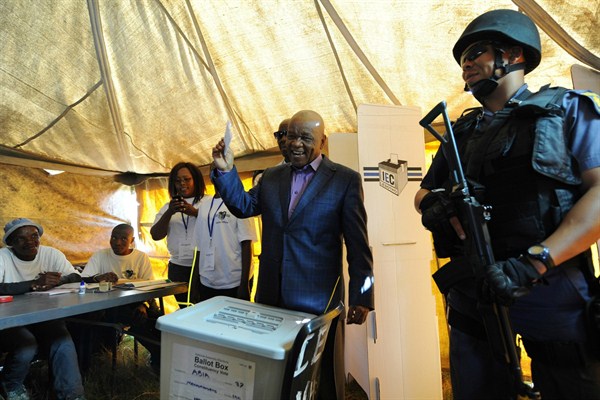Last week, the political party of Thomas Thabane, a former prime minister of Lesotho, won the most seats in national elections and made plans to form a new coalition. Thabane has been a central figure in his Southern African country’s political turmoil in recent years, and he now faces a host of challenges, including trying to hold members of the security forces responsible for past crimes while striking a compromise on constitutional reforms. In an email interview, Samuel Severson, who is currently on a Fulbright-Hays fellowship in Lesotho and is pursuing a doctorate in history at Yale University, describes the factors shaping Lesotho’s contentious politics as well as the chances that Thabane’s coalition will be effective.
WPR: Why has Lesotho held three elections since 2012, and what were the main issues driving this most recent campaign?
Severson: While the proximate cause of both the 2015 and 2017 “snap elections” was the collapse of governing coalitions within the National Assembly, the period since 2012 also fits within a broader pattern of pervasive instability in the nation’s postcolonial political history. Since independence from Britain in 1966, acrimony in Lesotho’s politics has been driven not only by ideological disagreement but also struggles over who will serve as gatekeeper for the state’s political and economic resources. The high stakes in these contests have fueled the politicization of the security forces, violence in the lead-up to and aftermath of elections, and, over recent years, the fracturing of alliances as MPs break away to start new parties. Each of these dynamics has played out in recent events in Lesotho.

